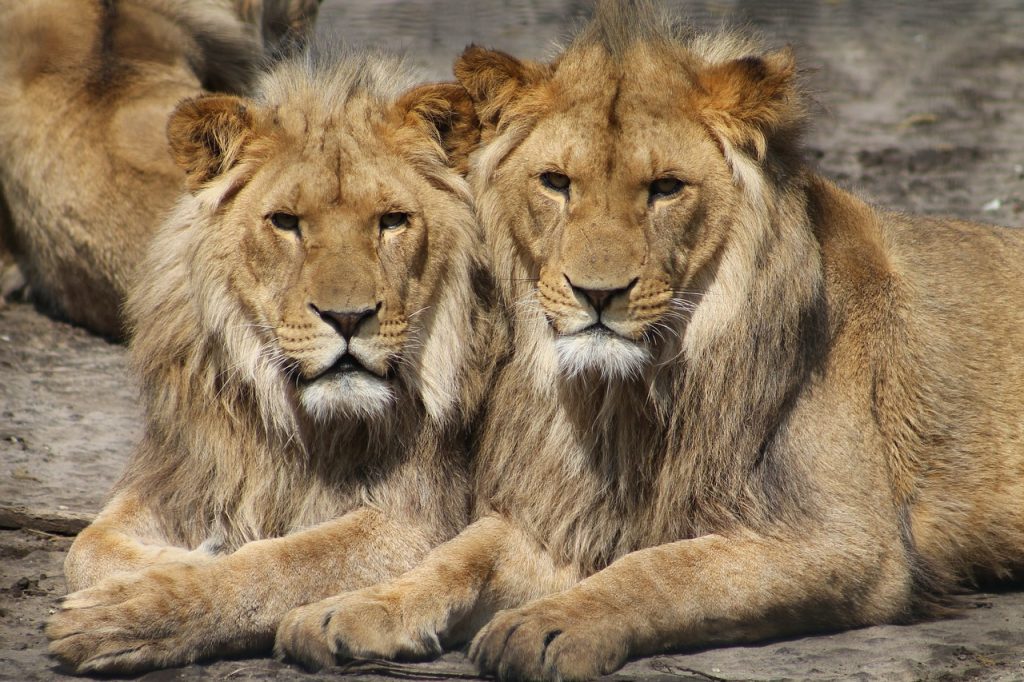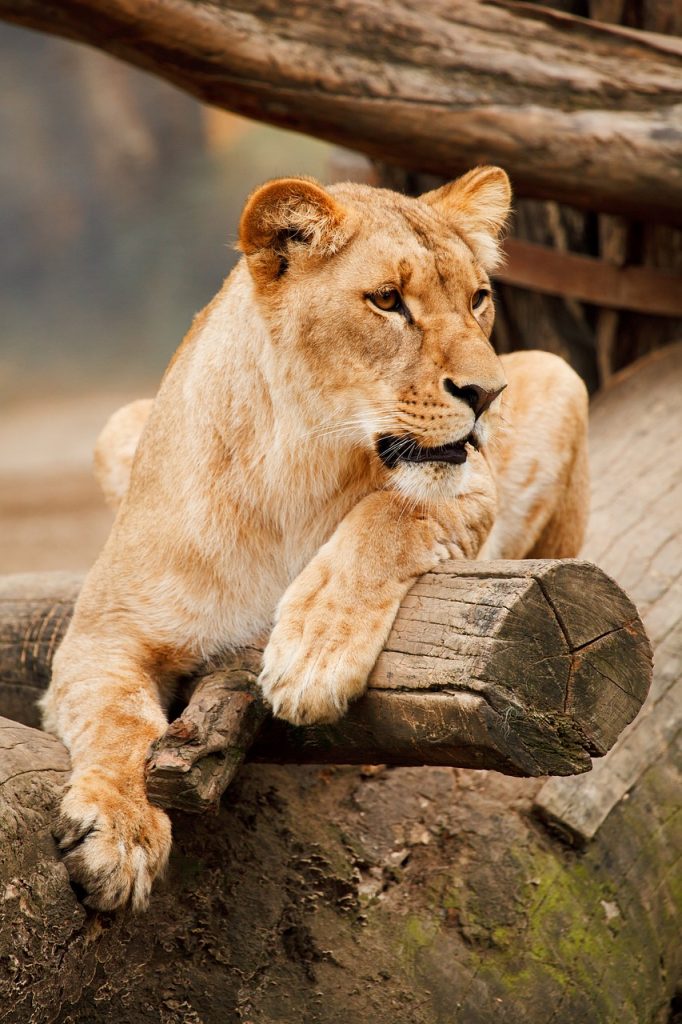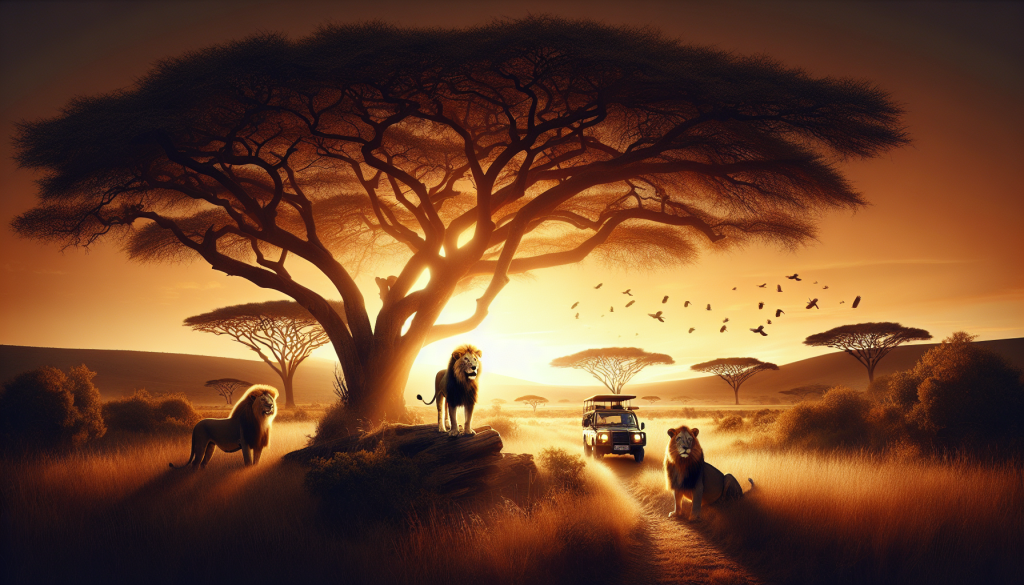Lion Tourism: Get Insider Tips from Experts for a Memorable Safari. Planning an unforgettable safari adventure? Look no further! In this article, we will provide you with insider tips straight from the experts in lion tourism. From the best time to visit to the must-visit lion parks, we’ve got you covered. Get ready to embark on an extraordinary journey where you’ll witness the majestic lions in their natural habitat and create memories that will last a lifetime. So, sit back, relax, and let us guide you through the world of lion tourism.
Planning Your Lion Safari
Choosing the Right Destination
When planning your lion safari, the first thing you need to consider is the destination. Africa is known for its incredible lion populations, and countries like Kenya, Tanzania, South Africa, and Botswana are popular choices. Each destination offers a unique experience, so think about the specific environment and landscape you’d like to explore. Research the different national parks and reserves in each country to find the one that best suits your preferences.
Deciding on the Best Time to Go
The timing of your lion safari is crucial for maximizing your chances of sightings. Lions are more active during the cooler parts of the day, so early morning and late afternoon are the ideal times for game drives. Additionally, certain seasons provide better opportunities for spotting lions. Dry seasons, when vegetation is sparse and animals congregate around water sources, are often the best times for lion sightings. Take into account factors such as weather, migration patterns, and breeding seasons when selecting the best time for your safari.
Booking Your Safari
Once you’ve decided on a destination and timing, it’s time to book your safari. Consider using a reputable tour operator that specializes in wildlife safaris. These operators can provide expert guidance, take care of logistical details, and ensure that you have a safe and rewarding experience. Compare different tour packages, read reviews, and ask for recommendations from fellow travelers. Remember to book well in advance, as safari accommodations and guides can fill up quickly, especially during peak seasons.
Selecting the Right Accommodation
Choosing the right accommodation is an important aspect of planning your lion safari. There are various options available, ranging from luxury lodges to tented camps. Consider the level of comfort you desire, as well as the location and proximity to lion habitats. Lodges and camps situated within or near national parks and reserves give you the advantage of being closer to the wildlife. Look for accommodations that prioritize sustainable practices and responsible tourism, as this ensures that your safari is eco-friendly and supports the conservation efforts in the area.
Preparing for Your Safari
Researching Lion Facts and Behaviors
Before embarking on your lion safari, it’s essential to educate yourself about these magnificent creatures. Learn about their behaviors, social structures, and hunting techniques. Understanding their habits will not only enhance your experience but also ensure your safety during encounters. Research the conservation efforts in place to protect lions and any current issues or challenges they face. This knowledge will give you a deeper appreciation for the lions you encounter on your safari.
Packing the Essential Safari Gear
Preparing for a lion safari requires careful packing to ensure you have everything you need. Start with the basics, such as lightweight and breathable clothing in neutral colors. Long sleeves and pants will protect you from the sun and insect bites. Don’t forget to pack a wide-brimmed hat, sunglasses, sunscreen, and insect repellent. Comfortable walking shoes or sturdy boots are a must. Additionally, bring a good pair of binoculars, a camera with telephoto lens, and extra batteries. It’s also beneficial to have a field guidebook for identifying other wildlife species.
Understanding Health and Safety Risks
When traveling to lion habitats, it’s essential to be aware of the health and safety risks involved. Make sure you are up to date on any required vaccinations and consult with your doctor or a travel clinic. Lions are wild animals, and encounters with them can be unpredictable. Follow the instructions of your safari guide at all times and maintain a safe distance. Be cautious of other animals, such as buffalo and elephants, which can also pose risks. It’s important to listen to the safety briefing provided by your tour operator and adhere to their guidelines.
Obtaining the Necessary Travel Documentation
Don’t forget to ensure that you have all the necessary travel documentation before embarking on your lion safari. Check the passport validity requirements for your chosen destination and ensure that your passport will remain valid for at least six months after your intended departure date. Research any visa requirements and apply for them in advance, if necessary. Keep copies of your passport, visa, and any other important documents in a separate location from the originals, just in case of loss or theft.

Getting Up Close with Lions
Choosing the Right Safari Activity
There are various safari activities to choose from when it comes to getting up close with lions. Game drives are the most common and allow you to explore a designated area with an experienced guide. Walking safaris offer a unique opportunity to track lions on foot, providing a more intimate and thrilling experience. Some locations also offer night drives, where you can witness the nocturnal behaviors of lions. Research the different safari activities available in your chosen destination and choose one that aligns with your preferences and comfort levels.
Opting for Guided Tours vs Self-Drive
Deciding between a guided tour or a self-drive safari is a personal choice that depends on your level of experience, comfort, and budget. Guided tours provide the expertise of a professional guide who knows the area, wildlife behaviors, and can share valuable insights. They take care of navigation, allowing you to focus on the experience. On the other hand, self-drive safaris offer more flexibility and independence. You can explore at your own pace and have the freedom to make spontaneous stops. Consider your preferences and level of confidence before making this decision.
Learning about Tracking and Spotting Lions
Tracking and spotting lions can be an exciting part of your safari experience. Learn about the signs and clues that indicate the presence of lions, such as fresh tracks, roaring sounds, or warning calls from other animals. Pay attention to your guide, who will have the expertise to track and locate lions. Be patient and remember that sightings are not guaranteed, but the thrill of finding lions in their natural habitat is worth the effort. Listen to your guide’s instructions and respect the animals’ space by maintaining a safe distance.
Knowing the Rules and Etiquette for Lion Viewing
Responsible tourism is crucial to the conservation of lions and their habitats. Familiarize yourself with the rules and etiquette for lion viewing to ensure minimal impact on their natural behavior. Follow your guide’s instructions regarding noise levels, movement, and respecting their space. Keep in mind that flash photography and loud noises can disturb and stress the animals. It’s essential to be a respectful observer and prioritize the well-being of the lions and the ecosystem they inhabit.
Capturing Memorable Lion Moments
Tips for Wildlife Photography
Capturing memorable lion moments is a highlight of any safari. To enhance your wildlife photography skills, consider these tips. Firstly, familiarize yourself with your camera equipment and practice using it before your safari. Learn about aperture, shutter speed, and ISO settings to have more control over your shots. Patience is key when photographing lions, so be prepared to spend time observing their behavior and waiting for the perfect moment. Use composition techniques to create visually appealing images, such as the rule of thirds and leading lines.
Using the Right Camera Equipment
Having the right camera equipment is essential for capturing stunning lion photographs. Invest in a DSLR or mirrorless camera with a telephoto lens to get close-up shots from a safe distance. A lens with a focal length of at least 200-400mm is recommended to capture the details of lions in their natural environment. Don’t forget to bring extra memory cards and batteries, as well as a tripod or monopod for stability. Protect your equipment from dust and moisture by carrying a rain cover or waterproof camera bag.
Understanding Lighting and Composition
Understanding lighting and composition is crucial for creating impactful lion photographs. Golden hours, which are the hours after sunrise and before sunset, offer the best lighting conditions for capturing warm and soft tones. Experiment with different angles and perspectives to create dynamic compositions. Utilize the rule of thirds by placing the lions off-center to add visual interest. Consider the background and foreground elements to provide context and tell a story through your images. Play with different focal lengths and depth of field to create varying effects.
Getting Unique Shots of Lions in their Habitat
To capture unique shots of lions in their habitat, think beyond the traditional portrait-style photographs. Look for opportunities to capture their behavior, interactions, and the environment they inhabit. Get creative with your compositions by incorporating elements such as trees, grass, rocks, or water bodies. Experiment with different camera settings to capture motion blur or freeze-action shots. Look for reflections or silhouettes to add a sense of drama to your images. Allow yourself to be inspired by the surroundings and let your creativity guide your photography.

Exploring Other Wildlife in Lion Habitats
Identifying Other Wildlife Species
While lions may be the main attraction, lion habitats are teeming with other wildlife species. Take the time to learn about the various animals you may encounter during your safari. It’s fascinating to identify and understand their behaviors and roles within the ecosystem. Research common species such as elephants, giraffes, zebras, wildebeests, and antelopes, as well as birds and reptiles. This knowledge will enhance your overall safari experience and make you appreciate the intricate web of life in these habitats.
Learning about Animal Interactions
Observing animal interactions is a captivating aspect of wildlife tourism. Lions often interact with other animals, such as hyenas, leopards, cheetahs, and even elephants. These interactions can be cooperative or competitive, depending on the circumstances. Learning about the dynamics between different species will allow you to interpret and appreciate these interactions while on safari. Observe and document these encounters respectfully, keeping in mind that they are natural behaviors that should not be disrupted.
Observing Prey-Predator Dynamics
Lions are apex predators, and witnessing their hunting activities provides a unique opportunity to understand the dynamics of prey-predator relationships. Prey animals, such as zebras and antelopes, have developed strategies to avoid becoming victims. Pay attention to the behaviors displayed by both predators and prey, such as stalking, ambushes, and evasive maneuvers. Observe how different species react to the presence of lions and other predators. This firsthand insight into the natural order of these ecosystems is a thrilling and educational experience.
Spotting Rare and Endangered Species in the Area
While exploring lion habitats, keep watch for rare and endangered species that may be present. Some areas are known for specific endangered species, such as rhinos, African wild dogs, or cheetahs. Spotting these elusive animals adds value to your safari experience and helps raise awareness about their conservation needs. If you are fortunate enough to observe these rare species, appreciate the privilege and understand the importance of conserving their habitats to ensure their survival for future generations.
Conservation and Responsible Tourism
Supporting Local Conservation Initiatives
Conservation initiatives play a vital role in protecting lions and their habitats. Look for opportunities to support local conservation projects during your lion safari. Many national parks and reserves have programs aimed at preserving the environment and safeguarding wildlife populations. Consider donating to or volunteering with reputable organizations that work towards lion conservation. By supporting these initiatives, you contribute to the long-term survival of lions and the overall biodiversity of the areas you visit.
Saying No to Lion Cub Petting and Walking
Lion cub petting and walking experiences may seem enticing, but they have severe consequences for the welfare of lions. These activities often support unethical breeding practices and contribute to the captive lion industry. Cubs used for these activities are often separated from their mothers at an early age, leading to physical and psychological harm. By saying no to lion cub petting and walking, you send a message against these harmful practices and promote the well-being of lions in their natural habitats.
Understanding the Impact of Tourism on Lions
Tourism, if not managed responsibly, can have both positive and negative impacts on lion populations. The influx of visitors can lead to habitat destruction, increased human-wildlife conflict, and disturbance to the natural behaviors of lions. On the other hand, tourism revenue can contribute to conservation efforts and support local communities. It’s important to choose safari operators and accommodations that prioritize sustainable and ethical practices. By selecting responsible tourism options, you can minimize the negative impacts of your visit and contribute to the long-term conservation of lions.
Choosing Sustainable and Ethical Safari Operators
When booking your lion safari, choose safari operators that prioritize sustainability and ethics. Look for those that have a commitment to environmental conservation, employ trained and knowledgeable guides, and support local communities. Ensure that the operator follows responsible wildlife viewing practices, such as adhering to established guidelines for approaching and observing animals. Consider operators that actively contribute to conservation initiatives, as this demonstrates their dedication to preserving lion populations and their habitats.

Experiencing Cultural Interactions
Visiting Indigenous Communities
A lion safari provides an opportunity not only to observe wildlife but also to learn about local cultures and interact with indigenous communities. Consider visiting nearby villages and engaging with locals to gain a deeper understanding of their way of life, traditions, and relationship with lions. Respect the culture and customs of the communities you visit, and seek permission before taking photographs or participating in any cultural activities. These interactions can enrich your safari experience and foster a greater appreciation for the symbiotic relationship between local cultures and lions.
Learning from Local Guides and Tribes
Local guides and tribes have invaluable knowledge about the environment, wildlife, and indigenous cultures. Take the time to learn from them and engage in conversations that allow you to gain insights and knowledge. Their traditional practices and stories offer a unique perspective on the relationship between lions and local communities. Ask questions and show genuine interest in their experiences to build connections and create a more immersive cultural experience during your safari.
Participating in Traditional Activities
To immerse yourself fully in the local culture, consider participating in traditional activities offered by indigenous communities. This can include learning traditional dances, trying local cuisine, or partaking in craft workshops. These activities provide a deeper appreciation for the intricate cultural heritage of the region and enhance the overall safari experience. As a visitor, it’s essential to participate respectfully and understand the cultural significance behind these activities.
Understanding the Relationship between Lions and Local Cultures
Local cultures often have deep-rooted beliefs and myths about lions, which contribute to the cultural identity of communities residing in lion habitats. By understanding these beliefs, you gain a greater appreciation for the unique relationship between lions and local cultures. Some communities view lions as sacred creatures, while others have developed practices to coexist with them peacefully. Engage in conversations with locals and listen to their stories to develop a well-rounded perspective on the importance of lions in their cultural heritage.
Dealing with Safari Challenges
Managing Expectations
Safari experiences can vary, and it’s important to manage your expectations. While lion sightings are often a top priority, there are many other aspects of a safari that contribute to the overall experience. Remember that wildlife is unpredictable, and sightings cannot be guaranteed. Embrace the adventure and appreciate the beauty of the natural environment, whether or not you spot lions. By managing your expectations, you allow yourself to fully enjoy all the unique aspects that a safari has to offer.
Dealing with Unpredictable Wildlife Behavior
Wildlife behavior can be unpredictable, and even experienced guides cannot control or predict animal movements. Lions may not always be active or visible during your safari, but that doesn’t mean you can’t appreciate other wildlife or the stunning landscapes. Relax and trust your guide’s knowledge and expertise to navigate through challenging situations. Embrace the unexpected, as it is often those unforeseen moments that become the most memorable and cherished memories of your lion safari.
Adapting to Weather Conditions
Weather conditions can play a significant role in shaping your safari experience. While you can plan your safari during seasons with optimal weather, unexpected changes can still occur. Be prepared for fluctuations in temperature, rainfall, or even extreme weather events. Bring appropriate clothing layers to accommodate for different weather conditions. Embrace the elements and trust that your safari guide will make the necessary adjustments to ensure your safety and comfort.
Overcoming Common Safari Obstacles
Safari experiences can present various obstacles, but with the right mindset and flexibility, these challenges can be overcome. Bumpy roads, long hours of driving, or encountering wildlife in unexpected places are all part of the adventure. Be patient, keep an open mind, and embrace the journey. Remember that your safari guide is experienced in navigating such obstacles, and their expertise will ensure a safe and rewarding experience. Focus on the positives and savor every moment of your lion safari.

Souvenirs and Mementos
Choosing Sustainable Souvenirs
When selecting souvenirs, prioritize sustainability by choosing eco-friendly products. Look for items made from recycled materials or natural resources that support local artisans and communities. Consider purchasing handmade crafts, local artwork, or products that promote wildlife conservation and support the protection of lion habitats. Avoid buying items made from animal products or those that contribute to illegal wildlife trade. By choosing sustainable souvenirs, you can contribute to the local economy while minimizing your ecological impact.
Supporting Local Artisans and Craftsmanship
One of the joys of traveling is discovering local artisans and their unique craftsmanship. Seek out local markets or craft cooperatives to support the talents and skills of indigenous communities. By purchasing handmade and locally produced crafts, you directly contribute to the livelihoods of artisans and help preserve traditional techniques. Engage in conversations with the craftsmen and women to learn about their craft and support cultural preservation efforts.
Avoiding Wildlife Products and Illegal Goods
When purchasing souvenirs, it’s crucial to avoid wildlife products and illegal goods. Products made from animal parts, such as ivory, fur, or skins, contribute to the illegal wildlife trade and can have devastating effects on endangered species like lions. Be aware of local regulations regarding the purchase and export of wildlife products. Opt for responsible shopping by choosing items that do not harm wildlife or the environment. By making informed choices, you play a part in protecting lions and their habitats.
Preserving Memories through Photography and Journaling
Preserving memories of your lion safari can be done through photography and journaling. Capture the moments and emotions with your camera, but remember to do so responsibly and without disturbing the animals. Keep a journal to record your thoughts, experiences, and any interesting encounters you have during your safari. Describe the sounds, smells, and sensations that make each moment unique. These memories will become cherished keepsakes that allow you to relive the magic of your lion safari long after it ends.
Sharing Your Lion Safari Experience
Writing a Travel Blog or Article
Sharing your lion safari experience through a travel blog or article allows you to inspire and inform others. Write about your journey, from planning to actual encounters with lions and other wildlife. Describe the destinations, accommodations, and safari activities you experienced. Share tips, insights, and lessons learned during your safari. Include captivating photos to bring your narrative to life. Writing about your lion safari not only preserves your memories but also offers valuable information to future travelers and supports the conservation of lions.
Creating Stunning Photo Albums
Transform your lion safari photos into stunning photo albums that you can share with family and friends. Choose the best images that tell a story or capture special moments. Arrange them in a visually appealing way that takes the viewer on a journey through your safari. Consider adding captions or short descriptions to provide context and share interesting facts and anecdotes. By showcasing your safari through photo albums, you create an immersive experience for others and evoke a sense of wanderlust.
Inspiring Others to Join Conservation Efforts
Your lion safari experience can be a catalyst for inspiring others to join conservation efforts. Share your knowledge about the threats lions face and the importance of conserving their habitats. Encourage others to take action by supporting conservation organizations, raising awareness, and advocating for responsible tourism. By telling your story and highlighting the beauty and fragility of lions and their ecosystems, you can inspire others to appreciate these majestic creatures and actively contribute to their long-term survival.
Utilizing Social Media to Share your Adventure
Social media provides a platform to share your lion safari adventure with a wider audience. Post your favorite photos, videos, and stories on platforms like Instagram, Facebook, or Twitter. Use relevant hashtags to connect with other wildlife enthusiasts and conservation-focused accounts. Provide informative captions that educate and inspire others to learn more about lions and the importance of their conservation. Utilize social media as a tool for positive change by promoting responsible and ethical tourism practices and encouraging others to take action for lion conservation.


